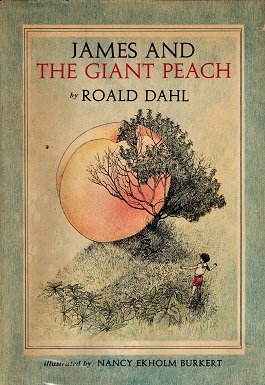John Maxwell Coetzee
Explore the detailed timeline of John Maxwell Coetzee, the acclaimed South African-born writer and Nobel Prize in Literature laureate. This chronology covers significant milestones in Coetzee's life, including his birth, literary achievements, awards, and major works that have made an impact on global literature.
Birth of J.M. Coetzee
John Maxwell Coetzee was born on February 9, 1940, in Cape Town, South Africa. He grew up in a family of English and Afrikaner descent, an experience that would later influence his literary work. Coetzee's early exposure to the complexities of South African society and his family's diverse background significantly shaped his worldview and writing style, leading him to become one of South Africa's most critical and acclaimed authors.
Graduation from University of Cape Town
In 1963, J.M. Coetzee graduated with a Bachelor of Arts degree in English and Mathematics from the University of Cape Town. His formal education in literature and mathematics at this prominent South African university provided a solid foundation for his future work as a distinguished writer, characterized by both literary depth and analytical rigor.
Publication of 'Dusklands'
J.M. Coetzee published his first novel, 'Dusklands,' in 1974. The book comprises two separate narratives set in different times and places but united by themes of imperialism and violence. 'Dusklands' marked Coetzee's arrival as a powerful voice in literature, showcasing his ability to explore complex themes with a unique narrative style. This debut novel established him as a writer of note, setting the stage for his prolific literary career.
Booker Prize for 'Life & Times of Michael K.'
J.M. Coetzee won his first Booker Prize in 1983 for his novel 'Life & Times of Michael K.' The novel tells the story of a marginalized man navigating the tumultuous landscape of apartheid-era South Africa. Coetzee's exploration of themes such as isolation, identity, and political conflict in this work solidified his reputation as a leading contemporary novelist. The Booker Prize recognized Coetzee's unique ability to address complex social issues through compelling narrative and profound character development.
Second Booker Prize for 'Disgrace'
In 1999, J.M. Coetzee became the first author to win the Booker Prize twice with his novel 'Disgrace.' The book, set in post-apartheid South Africa, examines the complexities of a society in transition through the story of a disgraced university professor. 'Disgrace' is praised for its incisive commentary on themes of power, redemption, and the personal and political challenges in a rapidly changing world. The novel's critical success further cemented Coetzee's status as one of the foremost novelists of his time.
Nobel Prize in Literature
J.M. Coetzee was awarded the Nobel Prize in Literature in 2003. The Nobel Committee praised Coetzee for his "well-crafted composition, pregnant dialogue, and analytical brilliance," describing his ability to "innumerate the involvement of the outsider" as remarkable. Coetzee's award recognized his outstanding contributions to world literature, particularly through his novelistic explorations of political and ethical dilemmas in South Africa and beyond, confirming his place as a literary giant.
Australian Citizenship
In 2006, J.M. Coetzee became an Australian citizen. Although originally from South Africa, Coetzee moved to Australia in 2002 and continued to write and teach. His decision to become an Australian citizen marked a new chapter in his life, allowing him to engage with and contribute to the literary and academic community in Australia. This move also reflected his personal and professional expansion beyond the context of South Africa into the global literary arena.
Release of 'Diary of a Bad Year'
J.M. Coetzee published 'Diary of a Bad Year' in 2007, a novel that combines fiction with Coetzee's essays on contemporary political and philosophical issues. The book is divided into sections that present varying viewpoints, reflecting Coetzee's engagement with the complexities of modern life and governance. 'Diary of a Bad Year' is noted for its inventive structure and its thought-provoking content, showcasing Coetzee's continued dedication to experimental literature that challenges readers' perceptions and encourages deep reflection.
Publication of 'The Childhood of Jesus'
In 2013, J.M. Coetzee released 'The Childhood of Jesus,' the first in a trilogy. This novel, marked by its philosophical and allegorical narrative, explores themes of dislocation and identity in an imagined society lacking historical memory. Coetzee's narrative technique raises existential questions and engages readers in a deep examination of what it means to begin anew in a world where past and belonging are obfuscated. The novel demonstrates Coetzee’s ability to weave complex philosophical themes with accessible storytelling.
Autoportrait: Publication of 'The Death of Jesus'
J.M. Coetzee published 'The Death of Jesus' in 2020, completing the trilogy that began with 'The Childhood of Jesus' and continued with 'The Schooldays of Jesus.' The book culminates the philosophical exploration of childhood, education, and existential contemplation. This closing installment deepens the thematic engagement with metaphysical inquiry, reflecting Coetzee's lifelong literary exploration of the human condition and strengthening his reputation as a writer who transcends conventional narrative to pose significant introspective questions.
Frequently asked questions about John Maxwell Coetzee
Discover commonly asked questions regarding John Maxwell Coetzee. If there are any questions we may have overlooked, please let us know.
What are some notable works of J.M. Coetzee?
When did J.M. Coetzee win the Nobel Prize in Literature?
When was J.M. Coetzee born?
What makes J.M. Coetzee's writing style unique?
Related timelines
More timelines connected to John Maxwell Coetzee







